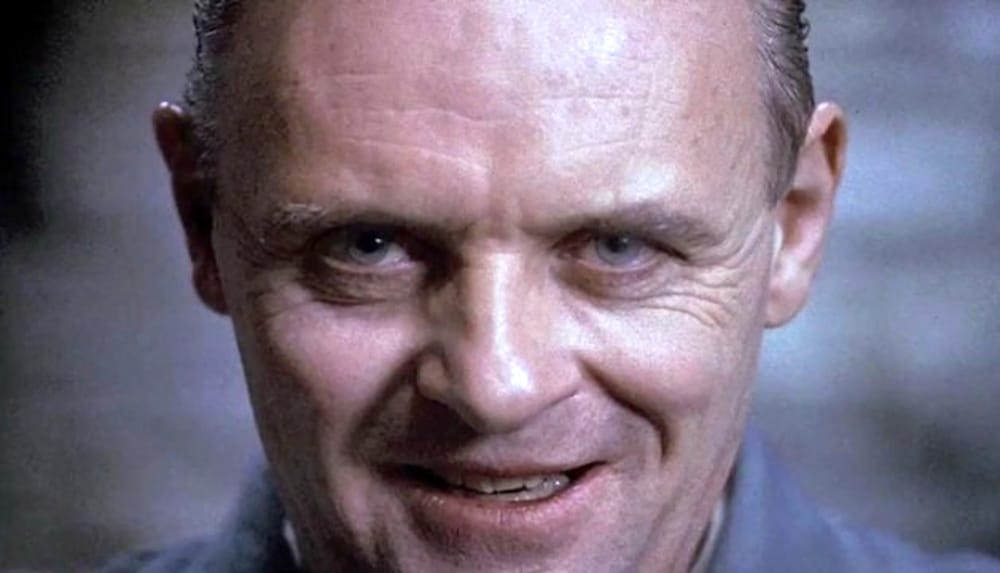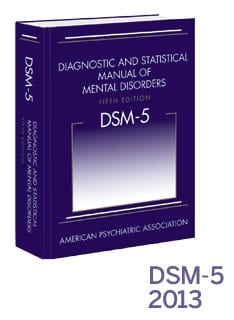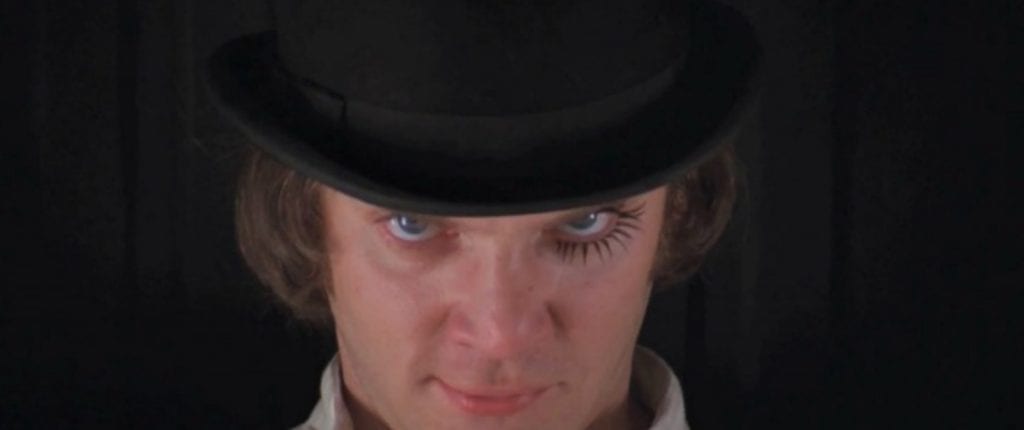Trending Now
Ever seen Silence of the Lambs? Or American Psycho? A Clockwork Orange? Pretty much any true crime documentary ever?

Photo Credit: Orion Pictures
Assuming you said yes to one of those, you’ve seen the way the media portrays psychopaths. Or, wait – sociopaths? Is Hannibal Lecter a sociopath or…?
It’s confusing, right?
There’s a reason you may not be totally clear on the difference between sociopathy and psychopathy – starting with the fact that popular media (movies, books, television) don’t always get it right. And even if they do, they really only focus on the worst, most violent cases, which then start to stand in for all psycho- and sociopaths in the public consciousness.

Photo Credit: Lions Gate Films
Let’s go back to the beginning. Actually, sociopathy and psychopathy aren’t even official psychiatric diagnoses anymore; the most recent version of the Diagnostic and Statistical Manual of Mental Disorders (aka DSM–5) doesn’t contain either of those terms. Instead, psychiatrists diagnose people who perhaps would have been labelled psychopathic or sociopathic in the past with one overarching disorder, called antisocial personality disorder.

Photo Credit: Yoshikia2001, CC BY-SA 3.0
There is some disagreement among the community whether it is actually helpful to use the labels “psychopath” or “sociopath” at all. For better or worse, however, the terms are in the popular culture. But though media portrayals focus mainly on criminals, not all psychopaths and sociopaths are violent. In fact, most are not – while movies and tv shows do a very good job of sensationalizing, they’re not so great at helping us to understand.
There is useful information to be gleaned, though, from media portrayals of sociopathy and psychopathy in a very broad sense. On the one hand you have your Alex Delarges (from A Clockwork Orange): aggressively violent murderers who don’t plan their acts so much as let their emotions dictate them. On the other side you’ve got your coolly treacherous manipulators, your Hannibal Lecters. They make meticulous plans and stick to them.
To make this as simple as possible: Alex Delarge exhibits symptoms of sociopathy, whereas Hannibal Lecter exhibits symptoms of psychopathy.

Photo Credit: Warner Bros
Sociopaths and psychopaths share a broad set of characteristics, including a disregard for or incomprehension of rules (whether legal or social), little or no ability to empathize, general lack of guilt, and a tendency towards violence. But beyond these attributes, there are significant differences between the two.
A psychopath has no conscience – that’s one of the defining symptoms of psychopathy. He (or she) may lie, cheat, steal and commit violence, and never feel bad about it. Psychopaths are very good at pretending to have a conscience, though, so it is very possible to interact with a person with psychopathic tendencies and never know it. Because they are collected personalities and keen observers of their environments, psychopaths often learn how to act normal enough to remain embedded in society their whole lives, with families and communities that are never aware, or barely aware, of their inner lives. In fact, psychopaths are often extremely charming because of their ability to remain utterly in control of themselves under any circumstances. But psychopaths have little care for others, seeing people primarily as tools to be used any way they please.

Photo Credit: iStock
Sociopaths, on the other hand, do feel guilt and have a conscience, although it is often weak or confused enough that they are able to ignore it. Often their conscience may look different from the normal person’s – they may connect strongly to a group or a cause, and then pursue their idea of “right” all the way to conclusions that seem horrific from the outside. They rarely are able to conform to social norms, often living lives on the fringes because they cannot trick people into believing that they empathize, the way psychopaths can.
Interestingly, doctors believe that psychopathy may be innate, a genetic or physiological disorder. There is evidence that portions of the brains in people who exhibit psychopathic traits act differently than those of the average human, particularly in the regions associated with emotions and impulsivity. Sociopathic tendencies, on the other hand, are thought to develop from situations of intense childhood trauma – and significant trauma in youth is present at much higher levels in adult criminals than in the population generally (to be clear, not all criminals are sociopaths. It’s just that childhood trauma, sociopathy and criminality are related).

Photo Credit: iStock
Though psychopathy is the most dangerous of all Antisocial Personality Disorder diagnoses, people who exhibit these symptoms can often times be rewarded by society. Their brains are wired to seek reward at all cost, so they are often extremely ambitious. One study that examined a population of 261 CEOs found that approximately one fifth of them displayed psychopathic tendencies (the same ratio was found in a study of prison inmates). Unbridled ambition and the calculation to match it may perhaps be encouraged in the white collar workplace (though clearly that unearths broader social questions), but problems arise when the ambition moves beyond the bounds of legality.
According to Dr. Scott Bonn, a professor of Criminology at Drew University, “At least 40 percent of all serial killers are unrepentant psychopaths.” This list includes Dennis Rader (BTK), John Wayne Gacy, and Ted Bundy.

Photo Credit: Public Domain
But while that sounds like a big number, an estimated 3% of the population may exhibit symptoms of Antisocial Personality Disorder, and an estimated 1% of the population may be psychopathic – and there just aren’t that many actual serial killers running around out there. So take a deep breath! The bad guys exist, but they’re almost certainly not coming your way.






